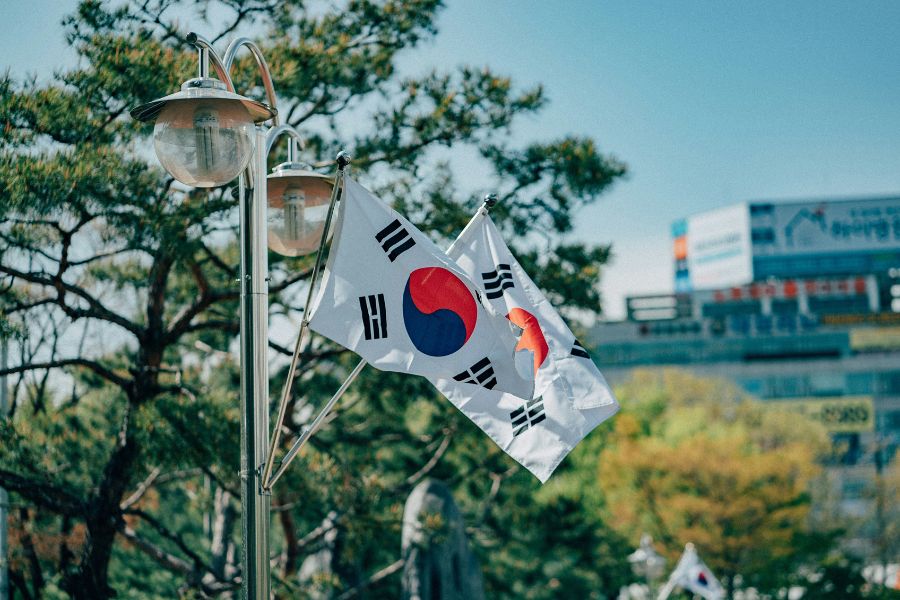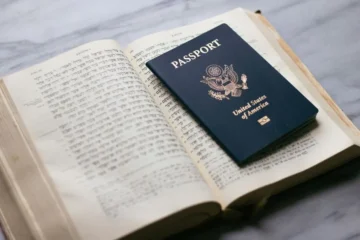South Korea, one of Asia’s most technologically advanced and economically stable nations, has become an attractive destination for professionals seeking long-term career opportunities. With its booming industries, rising foreign workforce, and strong global presence, many skilled workers wonder whether a work visa can eventually lead to permanent residency.
While South Korea’s immigration system is not as straightforward as countries like Canada or Australia, it does offer clear and realistic pathways for foreign professionals to settle permanently, provided they meet certain conditions.
Key Takeaways
Understanding the Link Between Work Visas and Residency
In South Korea, a work visa allows foreign nationals to live and work in the country legally for a fixed period, but not all work visas automatically lead to permanent residency. The permanent residence permit, officially known as the F-5 Visa, is one of the most sought-after immigration statuses in the country. It gives you almost all the rights of a Korean citizen, except the right to vote or hold public office. To qualify for it, most foreign professionals must first spend a few years on eligible long-term work visas such as E-2, E-7, or D-8, among others.
Unlike some Western systems where work-to-PR transitions are more direct, South Korea’s route is gradual. It focuses heavily on continuous residence, economic contribution, language skills, and social integration.
Main Work Visa Categories That Can Lead to Residency
While South Korea offers more than a dozen visa types for foreign workers, only a few are practical stepping stones toward permanent residency. The E-7 (Specially Designated Activities) Visa is perhaps the most popular among skilled professionals. It’s typically granted to foreigners working in specialized fields such as engineering, IT, design, or finance. With consistent employment and tax contributions, E-7 holders can later become eligible for an F-5 Visa after a few years.
Those in academia or education often enter South Korea on the E-1 (Professor) or E-2 (Foreign Language Instructor) visas. While E-2 visa holders face more restrictions in moving toward permanent residence, E-1 and E-7 professionals who stay continuously employed have a clearer route to apply for PR. Entrepreneurs and investors on the D-8 (Investment) Visa can also qualify for permanent residency, usually after five years of maintaining their investment and active business operations in the country.
Eligibility Criteria for a Work Visa in South Korea
Getting a work visa in South Korea typically requires a valid job offer from a local employer and approval from the Ministry of Justice. The employer must demonstrate that no local candidate is readily available for that position, especially for E-7 roles. The applicant’s educational background, relevant experience, and salary threshold are also evaluated closely.
In most cases, you’ll need at least a bachelor’s degree in a related field and a clean criminal record. The employer is responsible for sponsoring your visa and submitting the necessary documentation. Language proficiency, although not always mandatory for initial employment, often becomes a key factor later when applying for permanent residency.
Transitioning from Work Visa to Permanent Residency
The road to permanent residency in South Korea starts with building a stable life in the country. The general requirement for an F-5 Visa is at least five years of continuous residence under an eligible visa category such as E-1, E-2, or E-7. However, there are exceptions for certain categories; highly skilled professionals, top investors, or individuals contributing significantly to Korean society may qualify sooner, sometimes in as little as three years.
During your stay, the immigration authorities assess several aspects of your life in Korea:
- Consistent employment or business operation.
- Regular payment of taxes and national pension contributions.
- Proof of income stability above a minimum threshold.
- Evidence of cultural and linguistic integration, often demonstrated through the TOPIK (Test of Proficiency in Korean) exam or the KIIP (Korean Immigration and Integration Program).

Applicants who actively engage with Korean society, avoid legal issues, and demonstrate financial independence stand a much stronger chance of approval.
Applying for Permanent Residency: Step-by-Step
When you become eligible, the F-5 application must be submitted to the Korea Immigration Service (KIS). The process involves filling out an application form, submitting your passport, alien registration card, recent photographs, employment contract, tax records, bank statements, and proof of Korean language proficiency. The review process usually takes three to six months, depending on your background and visa history.
It’s worth noting that South Korea’s immigration system values consistency and documentation. Even minor errors or missing documents can delay approval. Many applicants also choose to complete the KIIP program, a structured government course on Korean society and language, which can sometimes waive the TOPIK language test requirement.
Timeframe and Challenges
In most cases, it takes about five to seven years to move from a work visa to permanent residency in South Korea. The timeline depends on the type of visa you hold, your employment stability, and your language skills. High-earning professionals and those with advanced degrees may qualify sooner, while others might take a little longer due to stricter evaluation of financial and social integration records.
The biggest challenges foreign workers face include language barriers, complex paperwork, and frequent policy adjustments. South Korean immigration laws can be strict about visa renewals, tax obligations, and employer sponsorships. A small lapse in residence or a change of employer without timely reporting can reset the clock toward your permanent residency eligibility.
Why Permanent Residency in South Korea Is Worth It
Despite the procedural hurdles, obtaining permanent residency in South Korea offers tremendous benefits. F-5 holders enjoy unrestricted employment rights, can open businesses freely, and are not tied to a specific employer. They also gain access to the national pension scheme, health insurance, and the ability to sponsor family members for long-term stays. For many, it’s also a stepping stone toward Korean citizenship, which becomes an option after several years of holding the F-5 status.
Also Read: Can You Get Permanent Residency in Finland Through a Work Visa?
Beyond the legal advantages, permanent residency grants you a sense of security and belonging in a country that continues to blend innovation with cultural depth. Whether you’re a teacher, engineer, investor, or creative professional, long-term residence in South Korea can open doors to a truly dynamic career and lifestyle.
Final Thoughts
Securing permanent residency in South Korea through a work visa is not an overnight journey, but it’s a feasible one for those willing to commit. The process rewards stability, integration, and contribution values deeply rooted in Korean society. If you can build a steady professional record, learn the language, and prove your long-term intent, South Korea does provide a pathway to call this remarkable country home.
For skilled workers and entrepreneurs who view their Korean experience as more than just a short-term contract, the F-5 visa represents the ultimate opportunity to stay, grow, and thrive in one of Asia’s most forward-looking nations.
Reference: https://www.internations.org/south-korea-expats/guide/visas-work-permits





